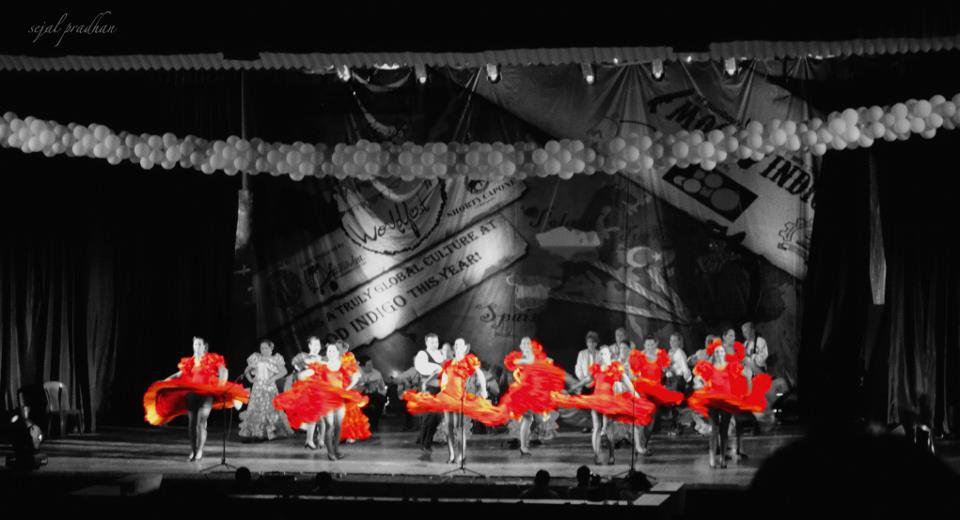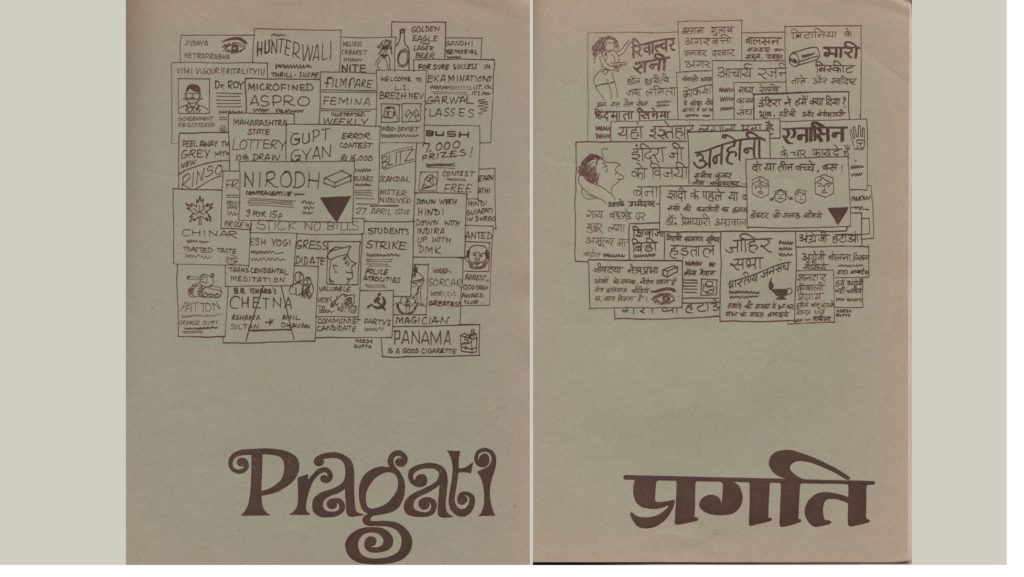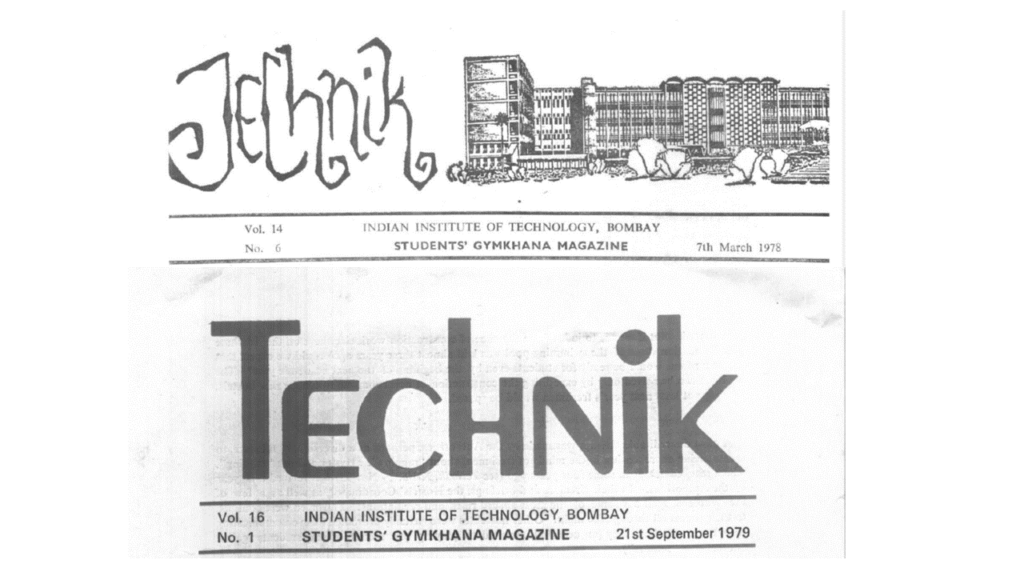Photo by Laura Chouette on Unsplash
When Ali sent a message via Ashok Kamath wanting a piece about the ‘literary life’ of IIT Bombay during my time there, I had to dig into rapidly dissipating memories, confused and grown tenuous with age, jumbled randomly together.
So a disclaimer: this piece is a mix of true stories, false memories and wish-fulfillment — 45 years later.
To get into the mood and drive recall, I decided to listen to YouTube playlists comprising music from then. A mistake, I fear, for multiple reasons, not least the distraction of trying to remember where I was when I first heard the song. And an even bigger one because I hummed along, with headphones on.
Ah well.
This piece is about a time that is now far away – as far away as any mythical galaxy populated by Jedi or even Jabba the Hutt. And before this continues, I have to admit a complete ignorance of everything that has happened after my departure from the Main Gate.
The decade is the 1970’s to 80’s – a decade of many firsts: the first time that modern India became food secure; the first (and fortunately, the only) time a Prime Minister decided that elections were a bad thing and declared an emergency; the first time India unambiguously won a declared war (the last one we faced); the first time the oil producers held the world to ransom – which created an inflationary spiral that took years to overcome.
But on a less exalted plane, it was also the first decade of Mood Indigo – itself a name created by someone (you can look it up) with a sophisticated taste in music. MI (an abbreviation now usurped by a Chinese phone, alas) actually changed the parameters of what a college cultural festival was about: grander in scale, wider in geographical reach and wilder (once upon a time) than any other. And as Mood Indigo expanded, it brought with it something that began as an inside joke and took on a life of its own, Daily Noise. A cheap, cyclostyled record of the day’s events, it was (and still is, for all I know) the junior sibling of the ‘respectable’ commentariat of IIT Bombay.

So to those first, before tales of excess.
The breadth and depth of knowledge of IIT students was always quite remarkable… sometimes, it even included their own subjects of study. It was not uncommon in the course of a week for you to find students who could quote the Gita in Sanskrit, the Quran in Arabic, Kamba Ramayana in Tamil or Firaq Gorakhpuri in Urdu. And all this is without accounting for the vast treasure trove of Marathi literature that was, in a sense, native to Bombay, that only true cosmopolitan Indian city.
Since IIT has always had students with literary talent – some genuine, some with pretensions to it – all this digested (and half-digested) work had to find an outlet. That outlet was called Pragati.
Pragati was a mammoth endeavour, taking much the better part of a year. The editorial teams (one for English and another for Hindi) had a particularly difficult task of not writing the entire section by themselves, but, instead, convincing others to write and get published.

Photo Courtesy: Pradeep Anand (B.Tech. ’75 Mett. Engg. & Mat. Sci. H8)
Obviously, some boards worked much better than others and some years’ issues were better than others. Either way, there was a lot of drudgery involved – from sourcing content to making editorial decisions (this was easy, just print everything that came in); from agreeing on a cover design to deciding on typefaces and design; from choosing a paper to selecting a printer. The process however was also immensely educational and sometimes, fun.
In those days, the best printers were in galas in central Mumbai – the Parel to Prabhadevi belt, extending a few kilometres on either side. Going to those industrial areas was the closest many of us got to an actual production establishment, where machinery worked.
The first introduction of most students to the non-ragging and non-academic life of the campus was Technik, the official organ of the IIT Bombay Students Gymkhana. Primarily given over to reporting events – and sometimes, commenting on them – Technik was produced completely in-house on the campus. It invited pieces from both students and faculty, and was a mix of the topical, the serious and the diverting, carrying debates and a little bit of nonsense. Not to forget crosswords – a perennial IIT favourite.

Often, Technik took strong positions on campus issues but allowed contrary views too, from matters as complex as striking mess workers, mass copying in exams, and support for weaker students. Usually, this did not lead to repercussions because it often walked a very narrow path between various conflicting forces – usually not getting into any serious trouble.
However, it did. Once – to my knowledge at least.
There had been a scandal at the Gymkhana – a corruption scandal involving invoices, false purchases and such. In their youthful righteousness, the Editors decided to report these, naming names. This resulted in the editors of Technik having a libel case (fortunately a non-cognizable crime) slapped on them. The case went nowhere but neither did the issue and by the time any resolution happened, the editors had passed out and had gone on to other things.
But one memory of that era’s Technik is very poignant. One of the editors I had the privilege of working with on Technik, Rajive Chandra, passed away recently due to complications from COVID – putting a close to a special chapter.
Technik was an attempt by the students of IIT Bombay to engage with issues that directly affected our lives as well as more philosophical ones. It was, in a sense, one of our first steps to reasoned adult arguments rather than long-winded discussions – a consequence of having to put thoughts down in writing, a discipline that has probably helped everyone who ever had anything to do with Technik.
At the opposite end of discipline, clear thinking and polite disagreement was the sheer unbridled exuberance of Daily Noise. Knowing that it was strictly temporary, this cheaply cyclostyled newsletter had a life span measured in hours – if that.
But that seems to have freed the writers and editors from having to make sense – instead it helped them pass through nonsense to some of the best writing that any IIT student ever did. Driven by the urge to make an impression, it was wild, unfettered and full of inside jokes that many visiting students didn’t get.
At its best, Daily Noise expressed the anarchy and irreverence that lay under the surface of 2000 young people who had chosen to put themselves in constraints, following a path that led inexorably to conformity (not that every IIT student ended up conforming to expectations, but that was the truth of the overwhelming majority of students).
Did any of the passion, effort and craft put into these magazines actually make a difference to the students and all the others on the campus and without? The answer must be a qualified no.
Were they fun and did they entertain the audience they were created for?
The answer is an unqualified yes!

1 comment
Vintage student publications from IIT Bombay by Ashok kamath published in May 2022 issue is a great read and took me
back to our times of late eightees . I was the student of Civil engineering , H9 between 1986 to 1990 . During our time apart from annual multi lingual publication called Pragati , there used to be three other publications and numerous other hostel magazines . These three were TECHNIK in English , AKSHA in Hindi and TANTRA in Marathi . I had a long association with Pragati and Aksha both . Responsibility to appoint coordinating editors and their timely publication lay with of GSAA .